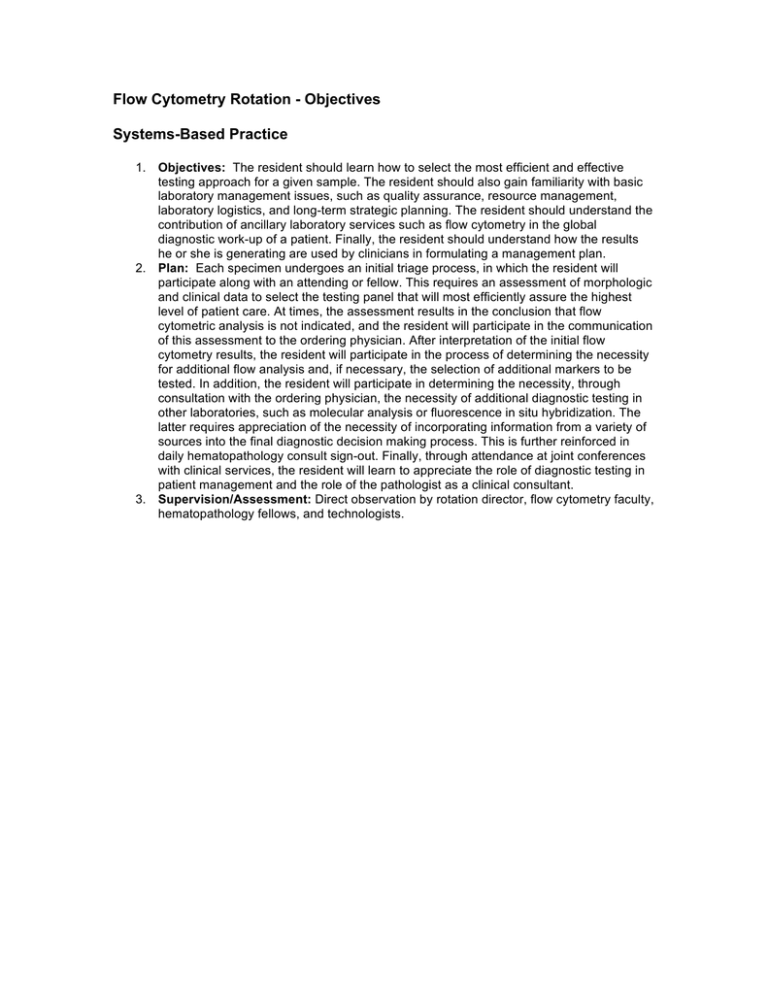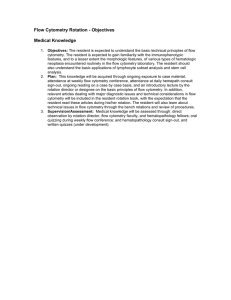Flow Cytometry Rotation - Objectives Systems-Based Practice
advertisement

Flow Cytometry Rotation - Objectives Systems-Based Practice 1. Objectives: The resident should learn how to select the most efficient and effective testing approach for a given sample. The resident should also gain familiarity with basic laboratory management issues, such as quality assurance, resource management, laboratory logistics, and long-term strategic planning. The resident should understand the contribution of ancillary laboratory services such as flow cytometry in the global diagnostic work-up of a patient. Finally, the resident should understand how the results he or she is generating are used by clinicians in formulating a management plan. 2. Plan: Each specimen undergoes an initial triage process, in which the resident will participate along with an attending or fellow. This requires an assessment of morphologic and clinical data to select the testing panel that will most efficiently assure the highest level of patient care. At times, the assessment results in the conclusion that flow cytometric analysis is not indicated, and the resident will participate in the communication of this assessment to the ordering physician. After interpretation of the initial flow cytometry results, the resident will participate in the process of determining the necessity for additional flow analysis and, if necessary, the selection of additional markers to be tested. In addition, the resident will participate in determining the necessity, through consultation with the ordering physician, the necessity of additional diagnostic testing in other laboratories, such as molecular analysis or fluorescence in situ hybridization. The latter requires appreciation of the necessity of incorporating information from a variety of sources into the final diagnostic decision making process. This is further reinforced in daily hematopathology consult sign-out. Finally, through attendance at joint conferences with clinical services, the resident will learn to appreciate the role of diagnostic testing in patient management and the role of the pathologist as a clinical consultant. 3. Supervision/Assessment: Direct observation by rotation director, flow cytometry faculty, hematopathology fellows, and technologists.


